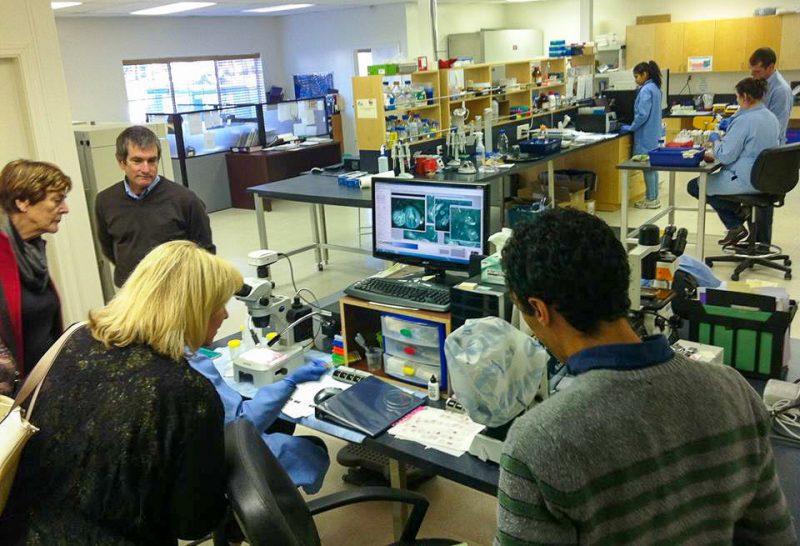Salmon stock recovery in B.C. gets a boost
New international lab accreditation will help salmon recovery levels
By SeaWestNews
The British Columbia Centre for Aquatic Health Sciences (BC CAHS) in Campbell River has attained the International Standards Organization (ISO) accreditation, another feather in its illustrious cap.
The ISO accreditation in a BC private fish health diagnostic lab means the reporting of fish pathogens leaves no room for doubt.
“This assures all salmon resource interests that our work is conducted to the highest standard and the results are accurate and defensible,” said Dr. Jim Powell, CEO of BC CAHS.
“Four virus assays (detecting procedures) — including Piscine Orthoreovirus (PRV) — are now conducted to a recognized international standard,” he said.
The BC CAHS is a non-profit organization with a state-of-the-art laboratory serving all stakeholders in fisheries and aquaculture, First Nations and the enhancement communities. It operates on a science-based model and adheres to a rigorous academic ethic.
It is dedicated to helping the recovery of salmon abundance through research to identify fish pathogens that impact salmon health.
By using advanced molecular and genetic techniques, researchers at BC CAHS are unraveling the mysteries of the genetic structure of fish pathogens to use in their detection methods.
“It’s only logical that when you report on viruses affecting salmon, that the procedures are done to the highest standard.” says BC CAHS, Lab Manager Garnet Martens.
“It took years of preparation, training and documentation to achieve ISO/IEC 17025:2017 accreditation, but it’s worth it.” said Martens.
“Now our clients know that our results are reliable, relevant and trustworthy according to the international standard requirements.”
Last summer, the BC CAHS, received funding a for a wet lab under the British Columbia Salmon Restoration and Innovation Fund, which is a 70 per cent federal, 30 per cent provincial cost-shared program.
Lana Popham, Minister of Agriculture Province of B.C. said the wet lab project, would enable scientists to monitor fish in land-based tanks.
“It will allow us to have another scientific tool that we can use to monitor salmon and the impacts of climate change,” said Popham.
Dr. Powell, had been working on getting this project off the ground for the past 15 years.
“A Level 2 Wet Lab will help us conduct the much-needed additional scientific research aimed at a better understanding of potential effects of pathogen transfer between wild and farmed salmon” Dr. Powell told SeaWestNews, in an earlier interview.
“It is necessary to have the facility in Campbell River because this is where migratory salmon pass through to get to the open ocean and then back to the spawning grounds. It is also the meeting place of wild and farmed fish, so it’s perfect to conduct research using the local waters”.
Mayor Andy Adams had stated “Campbell River is the ‘Salmon Capital of the World’ and is very supportive of work that the BC Centre for Aquatic Health Sciences does in providing our region with science-based evidence for the sustainability of all fisheries whether it be wild, commercial, recreational, farmed or indigenous.
“Having an operational wet lab here in Campbell River would be a tremendous asset to continue this critically important research and works very well with the City’s potential plans for a Salmon Centre of Excellence facility.”
(Image courtesy of BC CAHS Facebook)

